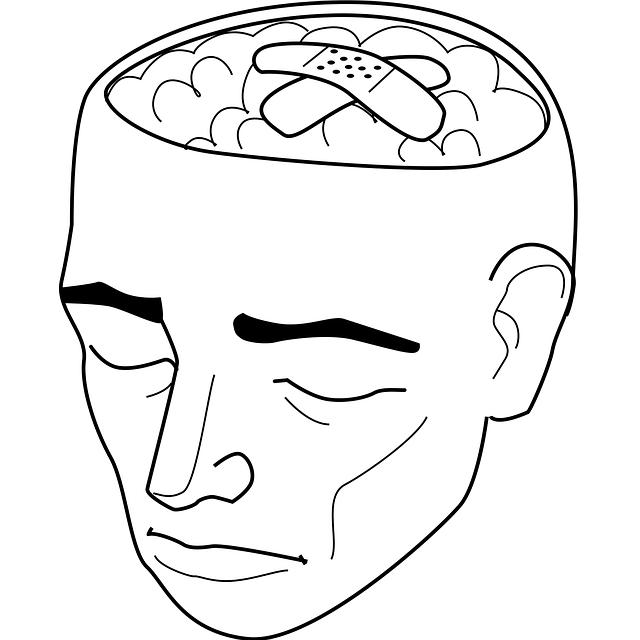Stress, a multifaceted response to life's challenges, significantly impacts overall well-being, especially for individuals with conditions like Parker Functional Neurological Disorder (PFND). Effective stress management is key to PFND therapy. Workshops focused on this aspect educate participants on identifying sources and cultivating inner strength through coping strategies. Parker Functional Neurological Disorder Therapy (FNDT) revolutionizes these workshops by targeting root causes, retraining brain responses, and enhancing emotional regulation. Combining practical tools with evidence-based practices, these workshops create a supportive environment for sustainable stress management. Success is measured through participant progress and mental wellness improvements, with ongoing support crucial for sustained benefits.
Stress management workshops are powerful tools for enhancing well-being. In today’s fast-paced world, understanding and mitigating stress is crucial. This article explores effective strategies for organizing such workshops, focusing on the role of Parker Functional Neurological Disorder Therapy (FNDT) in promoting mental health. We’ll delve into designing engaging content, fostering supportive environments, and measuring success to ensure lasting positive impacts. By integrating FNDT techniques, workshops can revolutionize participants’ stress management journeys.
- Understanding Stress and Its Impact on Well-being
- The Role of Functional Neurological Disorder Therapy (FNDT) by Parker in Managing Stress
- Designing Effective Workshop Content for Stress Management
- Creating a Supportive Environment for Participants
- Measuring Success and Providing Ongoing Support Post-Workshop
Understanding Stress and Its Impact on Well-being

Stress is a complex response that arises from various life circumstances and can significantly impact an individual’s overall well-being. It’s more than just feeling anxious or overwhelmed; it involves physiological, emotional, and behavioral changes. When left unmanaged, chronic stress can lead to serious health issues, affecting both the mind and body. This is especially true for individuals with conditions like Parker Functional Neurological Disorder (PFND), where stress management becomes a crucial aspect of therapy.
Understanding the nature of stress is essential in developing effective coping strategies. Workshops focused on this topic often delve into identifying sources of stress, recognizing its signs, and promoting inner strength development. By learning to manage stress, participants can enhance their resilience building and find better ways to cope with life’s challenges. This includes exploring techniques for anxiety relief, ensuring individuals leave the workshop equipped with tools to navigate stressful situations, ultimately fostering a healthier and more balanced lifestyle.
The Role of Functional Neurological Disorder Therapy (FNDT) by Parker in Managing Stress

In recent years, Parker Functional Neurological Disorder Therapy (FNDT) has emerged as a game-changer in stress management workshops. This innovative approach focuses on addressing the root causes of stress by understanding and retraining the brain’s response to various triggers. FNDT incorporates compassion cultivation practices, which have been shown to enhance emotional regulation and mood management. By teaching individuals how to modulate their nervous systems, Parker’s therapy enables them to better cope with stressful situations, leading to improved mental well-being.
Through a combination of evidence-based techniques and personalized guidance, FNDT empowers participants to develop sustainable stress management skills. The practice encourages self-awareness and provides tools for navigating challenging environments, fostering resilience. By integrating these compassion cultivation practices into workshops, organizers can offer transformative experiences that not only reduce immediate stress but also promote long-term mental health.
Designing Effective Workshop Content for Stress Management

Designing an engaging and impactful workshop on stress management requires a thoughtful approach to content. The goal is to equip participants with practical tools and techniques that they can immediately apply in their daily lives. Incorporating elements from Parker Functional Neurological Disorder Therapy (PFND) can offer unique insights into managing stress through understanding the mind-body connection. This involves teaching participants how to recognize and modify unhealthy thought patterns, which significantly influences emotional responses and physiological reactions.
The workshop should balance theoretical knowledge with interactive activities. Stress reduction methods such as mindfulness meditation, breathing exercises, and progressive muscle relaxation are essential components. By combining these evidence-based practices with the PFND framework’s emphasis on mind over matter principles, facilitators can guide individuals toward sustainable stress management strategies. Engaging in open discussions and sharing personal experiences can also foster a supportive environment, enhancing learning outcomes.
Creating a Supportive Environment for Participants

Creating a supportive environment is key to the success of any stress management workshop. This involves designing a space where participants feel safe and comfortable sharing their experiences, as well as implementing strategies that foster open communication and active listening. Incorporating elements of Parker Functional Neurological Disorder (PFND) therapy can significantly enhance this process. Through tailored activities and exercises, workshops can help individuals develop inner strength and self-esteem improvement techniques, allowing them to better cope with stress in their daily lives.
The ambiance should encourage participants to engage with the material, promoting active participation in learning stress reduction methods. A welcoming atmosphere, coupled with skilled facilitators who model empathy and understanding, can make all the difference in a person’s ability to unlock their inner resources and cultivate resilience. By focusing on these aspects, workshops can create an environment conducive to personal growth and positive change.
Measuring Success and Providing Ongoing Support Post-Workshop

After facilitating stress management workshops, measuring success goes beyond simply gauging attendance or satisfaction levels. A comprehensive approach involves tracking participants’ progress in implementing learned techniques and their overall mental wellness improvements. This can be achieved through post-workshop feedback forms, follow-up interviews, or even a simple mental wellness journaling exercise guidance. By collecting qualitative and quantitative data, organizers gain valuable insights into the effectiveness of the program. For instance, assessing changes in mood management skills over time using standardized scales can highlight the impact of the workshops on participants’ day-to-day lives.
To ensure long-term benefits, ongoing support post-workshop is vital. This could be provided through online resources, regular newsletters with practical tips and techniques, or access to a supportive community. For individuals dealing with complex conditions like Parker Functional Neurological Disorder Therapy (PFNDT), continuous guidance and a sense of community can make all the difference in applying Mind Over Matter principles to their daily struggles. Regular check-ins allow facilitators to offer personalized advice, answer questions, and encourage participants to stay committed to their mental wellness journey.
Stress management workshops, designed and facilitated by experts like Parker with expertise in Functional Neurological Disorder Therapy (FNDT), offer a comprehensive approach to well-being. By addressing stress’s profound impact on mental health through tailored content, supportive environments, and ongoing support, these workshops empower individuals to navigate life’s challenges more effectively. Incorporating FNDT techniques enables participants to gain valuable tools for long-term stress reduction, fostering a healthier and more balanced lifestyle.














